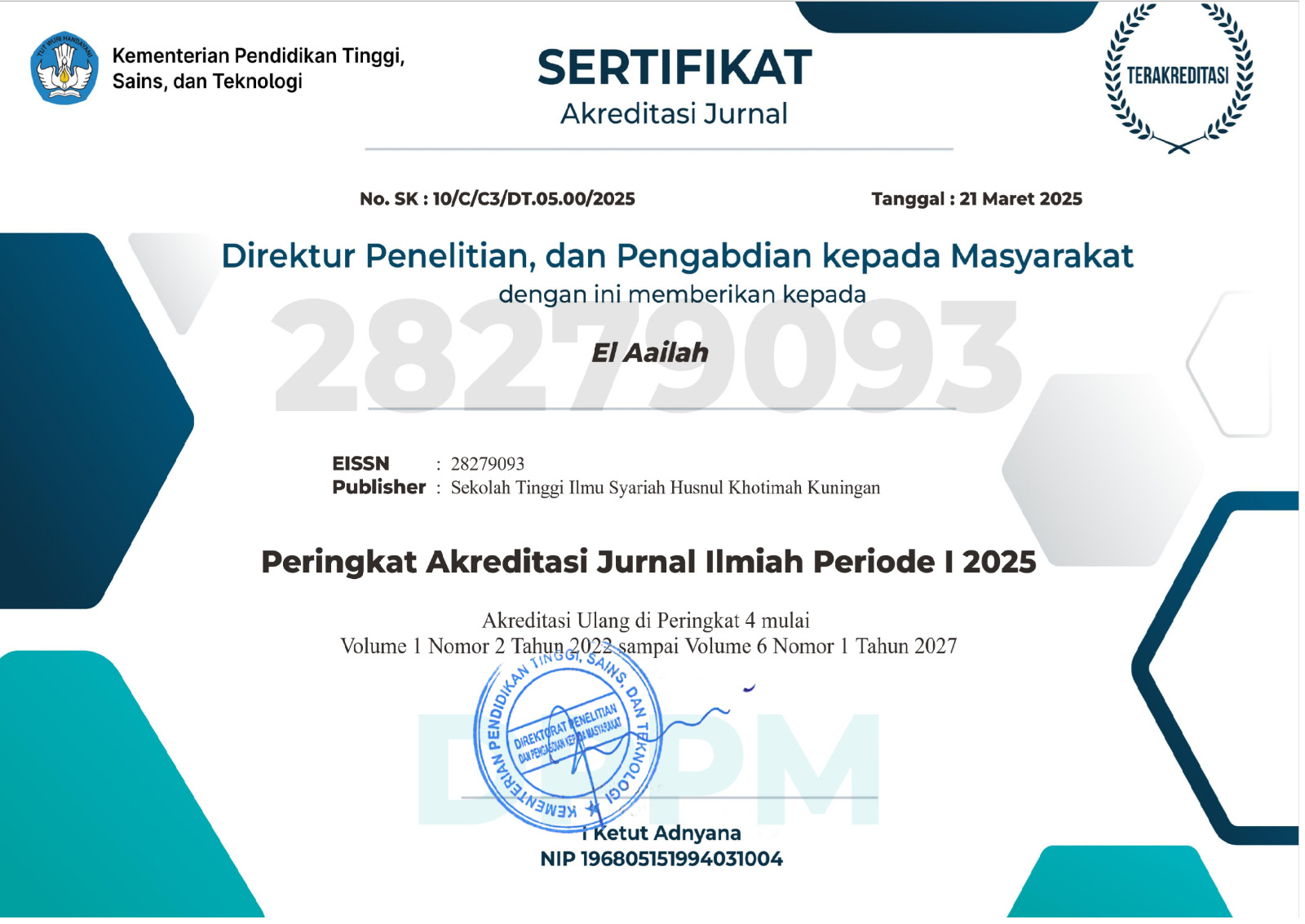TINJAUAN MAQASHID SYARI'AH TERHADAP FATWA PENGHARAMAN NIKAH SIRRI OLEH PCNU CIREBON
DOI:
https://doi.org/10.59270/aailah.v3i2.251Keywords:
Unregistered Marriage, Maqosid Sharia, FatwaAbstract
The prohibition of unregistered marriage is the formulation of Bahtsul Masail Fatwa of the PCNU Cirebon District. According to the Bahtsul Masail Nahdlatul Ulama Institute (LBMNU), unregistered marriages are marriages that occur without any notification and registration at the Religious Affairs Office (KUA) and it occurs because there is a problem. This research aims to find out the contents of the fatwa formulating the prohibition of unregistered marriages and to find out the Maqosid Sharia review of the fatwa prohibiting unregistered marriages in the Bahtsul Masail of PCNU Cirebon Regency. This research uses qualitative research methods, with the type of field research. There are two types of data sources in this research, namely primary data and secondary data as supporting data. Then, this research uses two types of data collection techniques, namely semi-structured interviews and documentation. The results of this research, based on the results of the Bahtsul Masail of PCNU Cirebon Regency, state that unregistered marriages are prohibited based on the reasons of the parents/guardians who disapprove the marriage, economics, not being old enough, pregnancy out of wedlock, unclear status of divorce, difficulty in polygamy regulations and contract marriage. Then, the fatwa on the prohibition of unregistered marriages based on a review of Maqosid Sharia is that the marriage that is not in accordance with the principles of Maqosid Sharia Hifzh al-Din (protecting religion), namely the issue of the marriage guardian's disagreement. Then, there are economic issues and not being old enough, if someone continues to carry out the marriage according to the rules then it is valid, and this is in accordance with the Maqosid Sharia principles of Hifzh al-Din (protecting religion), Hifzhal-Nasl (protecting offspring) and Hifzh al-Nafs (protecting soul/honor). Then the issue of pregnancy out of wedlock, if the marriage is by the aim of getting protection from the state, then it is in accordance with Hifzh al-Din (protecting religion), hifzh al-Nafs (protecting soul/honor), and hifzh al-Nasl (protecting offspring). Then, the issue of the difficulty of polygamy regulations is in accordance with the Maqosid Sharia principles of Hifzh al-Nasl (protecting offspring) for children, Hifzh al-Mal (protecting assets) for living and Hifzh al-Nafs (protecting the soul/honor) for one's wife. And the last one is a contract marriage. Contract marriage is not permitted because it is not in accordance with the Maqosid Sharia principles of Hifzh al-Din (protecting religion), Hifzh al-Nasl (protecting offspring), and Hifzh al-Nafs (protecting soul/honor).
Downloads
Published
Issue
Section
License
Copyright (c) 2024 El 'Aailah: Jurnal Kajian Hukum Keluarga

This work is licensed under a Creative Commons Attribution-NonCommercial-ShareAlike 4.0 International License.





